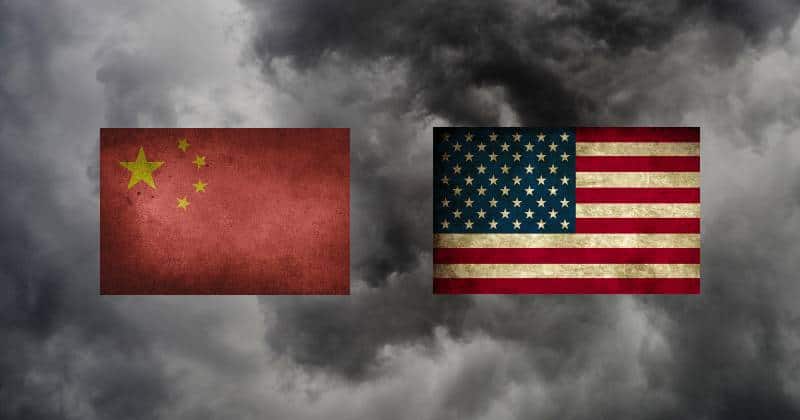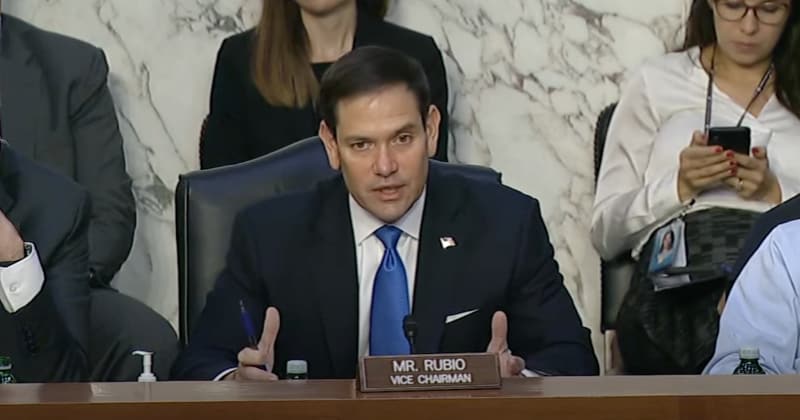Last week, U.S. Sen. Marco Rubio, R-Fla.., sent a letter to U.S. Secretary of Energy Jennifer Granholm probing the Energy Department’s decision to transfer of all vanadium redox flow battery (VRFB) production to foreign entities, including some based in the People’s Republic of China (PRC).
Rubio insisted this violated previous requirements that the batteries be “substantially manufactured” in the U.S. He also pointed to the federal government spending $15 million to bankroll domestic research and production of VRFB.
The letter is below.
Dear Secretary Granholm:
I write to request information with regard to UniEnergy Technologies’ transfer of its U.S. government license to produce vanadium redox flow battery (VRFB) technology to foreign entities. This VRFB technology, designed by the U.S. Department of Energy’s (DOE) Pacific Northwest National Laboratory with the express purpose of advancing U.S. national interests and fostering a manufacturing boom in our country, is estimated to have cost U.S. taxpayers more than $15 million. Instead of advancing our strategic interests, it appears that DOE has allowed this critical technology to be given to foreign entities, including some based in the People’s Republic of China (PRC).
As you know, research on the Pacific Northwest National Laboratory’s VRFB began in 2006. In 2012, the project’s lead scientist, Gary Yang, applied for a license to manufacture and sell the design. The license was granted, leading to the formation of UniEnergy Technologies, which branded the battery ReFlex.
In 2017, UniEnergy Technologies granted Chinese firm Dalian Rongke Power Company an official sublicense to manufacture the VRFBs in the PRC. Dalian Rongke Power Company has received significant backing from the Chinese Academy of Sciences (CAS)—an entity whose parent institution is the PRC’s State Council. CAS played an important role in the PRC’s early scientific advances, particularly in Beijing’s strategic weapons program, and still plays a critical role in support of the defense industry, notably in the Chinese Communist Party’s (CCP) high technology aspirations.
It must be noted that this transfer was apparently done in violation of the original terms of the U.S. government license, which required UniEnergy Technologies to sell a certain number of batteries in the U.S. and that the batteries must be “substantially manufactured” in America. Subsequently, the CCP launched several large demonstration projects of the technology and announced millions of dollars in funding for new initiatives. By 2019, Dalian Rongke Power Company’s battery industry had improved so much that UniEnergy Technologies engineers were told they would have to work in the PRC for months.
In 2021, UniEnergy Technologies made a formal request to DOE to approve the transfer of its official license to Vanadis Power, a German-based company that produces batteries in the PRC. Despite having numerous regulations in place to prevent the off-shoring of critical materials, such as VRFBs, DOE approved the transfer. The U.S. warehouse where UniEnergy Technologies planned to produce VRFBs has been completely shuttered. Meanwhile, Dalian Rongke Power Company is listed as the top manufacturer of VRFBs worldwide.
For far too long, the CCP has captured vital U.S. technology through illicit means and the carelessness of government agencies and businesses. Beijing’s own laws and policies dictate that scientific advancements utilized by Chinese entities must ultimately be used to support the CCP’s strategic goals. One of these goals, of course, is to displace the U.S. as an international power by gaining economic leverage over critical supply chains. The CCP has consistently demonstrated its ability to undercut international competitors in industries it has secured intellectual property, posing itself as the only viable option for sourcing critical technologies. PRC hegemony in energy grid-related systems is a national security threat, as American utilities that wish to utilize this technology may be forced to source it from the PRC, potentially giving Beijing access to sensitive grid control systems. CCP access to, or control over, U.S. energy grid systems would be unacceptable.
Accordingly, I request all details pertaining to UniEnergy Technologies’ transfer of its license to foreign entities. Thank you for your attention to this important matter.
















Pingback: Marco Rubio Bashes Energy Department’s Decision to Transfer Technology Production to China – Voice U Can Hear
Pingback: Marco Rubio Bashes Energy Department’s Decision to Transfer Technology Production to China - USA NEWS TAB